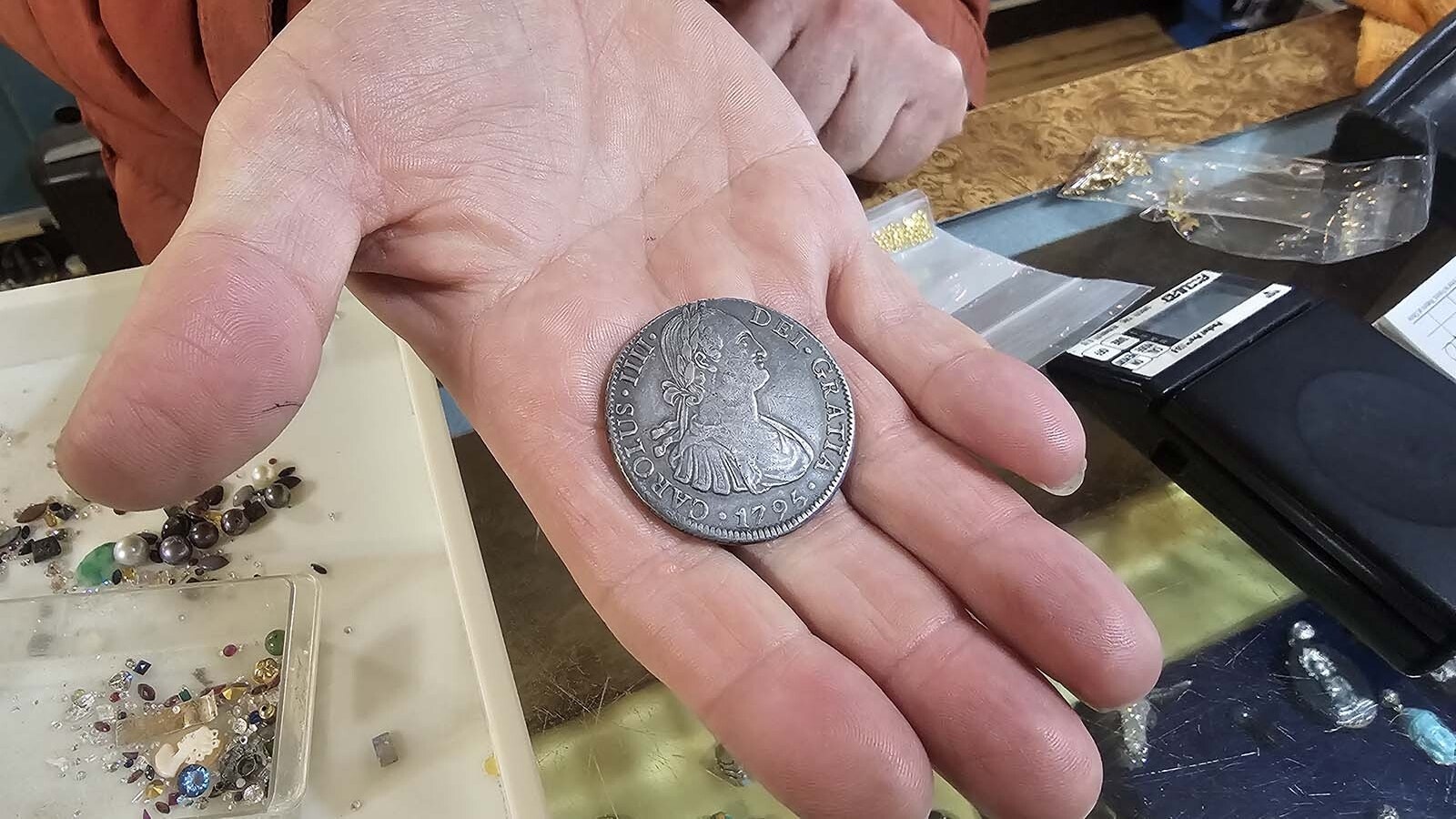By Renée Jean, Business and Tourism Reporter
renee@cowboystatedaily.com
Wyoming-based American CryptoFed Dao will get more time to defend itself against SEC allegations that the company failed to provide even basic financial information when it tried to register two digital tokens.
The company is facing its second administrative action by the SEC after it first tried to register its two tokens, Ducat and Locke, last year, and then tried to withdraw them from the process in June.
“We have a decent chance to win this case,” Chief Operating Officer Xiaomeng Zhou told Cowboy State Daily. “We are on track to open the door for Wyoming DAO to register with the SEC. American CryptoFed’s SEC public hearing is the first ever trial of a Wyoming DAO before the SEC’s Administrative Law Judge.”
More Study Needed
Administrative Law Judge Carol Fox Foelak gave American CryptoFed two additional weeks to submit evidence in the case and also allocated more time for the hearing set in January.
In making the concession, Foelak said she felt she needed to study the case more closely.
“Your testimony has now enhanced my ability to study the S-1,” she said. “But there seems to be a lot of disclosure there about how the tokens worked and the smart contract and so on.
“So, I think — I think you’ve done a great job in educating us. And I’m sure you’ll be testifying some more on other topics in the future. And if I need more information on how the tokens work, I can ask you then.”
Zhou said the additional time is critical to help the company strengthen its presentation for the hearings, which are set for Jan. 18-20.
What Is American CryptoFed
American CrytpoFed is trying to set up a frictionless payment system for business and individuals, which the company believes will help eliminate costly transaction fees, like the ones that merchants pay when customers buy things with a credit card.
It already has the backing of the powerful Merchant Advisory Group, which represents 165 of the largest U.S. merchants who, between them, cover more than $4.8 trillion in annual sales at more than 580,000 locations across the U.S. and online.
The group has previously submitted a letter of support for American CryptoFed’s concept, which is part of the Wyoming Select Committee on Blockchain, Financial Technology and Digital Innovation Technology record on a separate bill that seeks to create a digital token for Wyoming.
The Tokens
Two tokens are key to the American CryptoFed model. They are the Ducat stablecoin for everyday exchanges, and the Locke token for governance.
The stablecoin has been tied to price index data to lock down volatility. Eliminating the effects of either deflation or inflation preserves the monetary value of the coin between exchanges.
The Locke, meanwhile, is the mechanism members use to ensure the Ducat’s sustainability, as well as carry out network decisions and rules.
Wyoming Pioneer
American CryptoFed DAO is Wyoming’s first legally recognized Decentralized Autonomous Organization.
How it gets treated here could inform the process for all DAOs to come. In fact, American CryptoFed was recognized as the world’s first legal DAO when it filed its paperwork in Wyoming.
In general, a DAO uses blockchain technology to encode membership decisions into smart contracts, which can then rigidly enforce how digital assets function with computer code.
Doing The SEC Hussle
American CryptoFed had filed paperwork with the SEC last year to register both of its digital tokens, but then withdrew the application in June after deciding its tokens weren’t really securities after all
The SEC, however, rejected the withdrawal and instead issued a subpoena seeking additional details about the company’s finances, how the tokens work and other materials the federal agency says were omitted from the initial registration statement.
SEC also said statements within the registration documents conflict with each other. In one place, for example, the company says the Ducat and the Locke aren’t securities. But then in a different section, the paperwork says they are securities to be registered, and the process itself is intended to register securities.
“Regardless of whether the tokens are securities, one of the statements must be false,” SEC wrote in its administrative order.
Lack Of Precision And Guidance
The case is the latest in an ongoing wrestling match between emerging digital asset companies and the SEC, which the companies complain has yet to set up clearcut guidelines about what is and isn’t allowed, and how things should be handled.
“The SEC has no legal basis to bring any legal actions against any (digital asset) entity and against any individual with allegations of ‘Unregistered Securities,’ when the actual pathway to registration with the SEC did not ever and does not currently exist,” Zhou previously told Cowboy State Daily. “All the pending SEC cases with allegations of ‘unregistered securities’ should be unlawful. American CryptoFed will make this point loud and clear during our public hearing and legal documents.”
Zhou added his company has many times asked the SEC for guidance which, he said, continues to be lacking in any clarity for this new sector.
“If CryptoFed prevails, the crypto industry will have a better future because American CryptoFed will force the SEC to provide ‘precision and guidance,’ to complete Form S-1 Statement registration,” Zhou said.
Other Wyoming Companies
American CryptoFed is not the only Wyoming digital asset company that’s become stuck in a labyrinth of half-finished and non-existent digital currency regulations that sometimes leaves companies no point of entry or exit.
Among these, Cheyenne-based Custodia Bank, formerly Avanti, the nation’s second digital asset bank, has filed what could be a precedent-setting lawsuit against the Federal Reserve for slow-walking its application for a master account.
Custodia should qualify for the account under Wyoming regulations set up for Special Depository Institutions, but the Fed has not acted on the application. It was filed more than two years ago.
A Potential Windfall
That has frustrated founder Caitlin Long, who has helped spearhead digital asset laws in Wyoming after a 22-year career on Wall Street.
She believes capturing interest from this emerging industry could bring millions to the Cowboy state.
“South Dakota, our neighbor, did something similar in the early 1980s when they went after the credit card industry,” she has told Cowboy State Daily. “They were able to get the credit card companies to move to Sioux Falls, South Dakota.”
Forty years later, there are 40,000 jobs in that industry in Sioux Falls, Long said.
“So that’s what Wyoming is playing for, is to bootstrap our financial services industry, and we’ve been blocked by Washington, D.C.,” Long said.
Slap In The Face
Recently, however, the Fed approved an application from New York’s BNY Mellon to begin offering a crypto custody service. The lightning-fast approval has particularly riled Cowboy State digital asset experts who say Wyoming’s digital asset companies are still mired in the federal swamp of current digital asset law.
Meanwhile, Custodia’s attorneys have filed a motion in the case, describing that approval as favoritism.
“The good players who are focused on building the technology are trying to get bank and broker dealer license to be able to do it in a regulated and safe way,” Long said. “And neither the SEC nor the Federal Reserve has allowed those players to achieve those licenses to date.”





